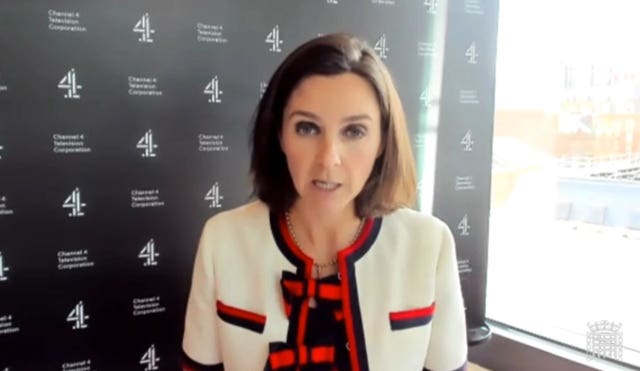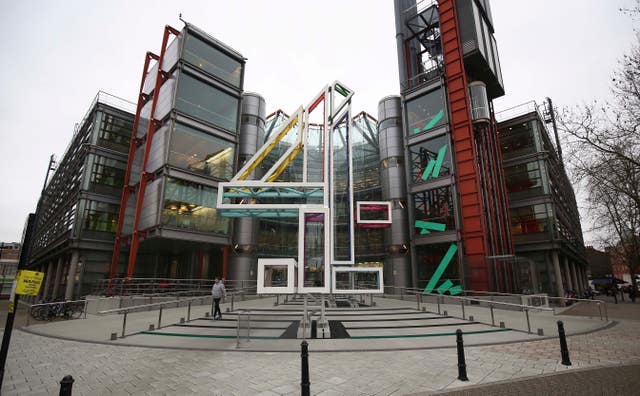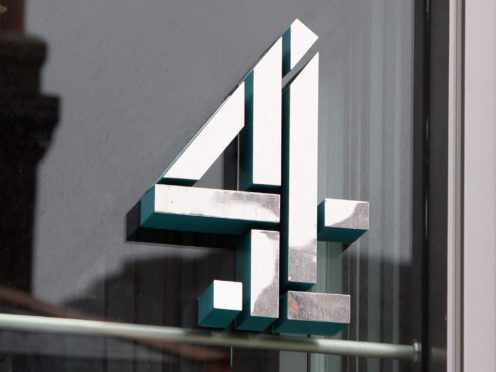Privatising Channel 4 could have “serious and long-lasting consequences” for the television sector and the wider UK economy, with the channel’s extensive coverage of the Paralympics and commitment to diverse programming under threat, executives have warned.
The Government is currently consulting on plans to privatise the channel, which could be sold off to a private buyer.
At present the channel is owned by the Government and receives its funding from advertising.
The Government has said it is consulting on privatisation because it wants to ensure the long-term survival of the channel.
But TV bosses have said it would lead to “less risk-taking, fewer programmes with real societal impact, and fewer opportunities for new talent”.
Alex Mahon, chief executive of Channel 4, said the consultation has “spurred vigorous debate about what Channel 4 should become next, what can we do more of, how can we be more radical, how can we thrive?” but she is yet to see evidence that privatising the channel would strengthen it.
Instead she warned privatisation could be detrimental to the industry as well as the broader economy.
She said: “We are an organisation that embraces change, we stand ready to work constructively with government to deliver even greater impact in Britain.

“Ultimately, this is not a decision for us to make. However, having considered all the available analysis extremely carefully, and modelled and stress-tested this, we have not seen any evidence that the irreversible change of privatising Channel 4 will be in the interest of either the British audiences or the UK economy.
“It could well have serious and long-lasting consequences for our world-leading television production sector, and for the progress that has been made in our creative industries outside of London.
“Plainly speaking, jobs, investment and providing the skills training and opportunities for young people in the creative industries up and down the UK.”
In 2019 Channel 4 announced it was moving its headquarters to Leeds and opening creative hubs in Bristol and Glasgow. It also has offices in London and Manchester.
However Ms Mahon told reporters privatisation would be likely to mean having so many bases was no longer viable.
She said: “Owners would also likely want to reduce our office footprint, although it’s helping to build the UK in creative clusters and level up the nations and regions, it would not make much sense commercially for a small company to maintain five different locations, and it would affect who we work with.”
She said this could affect the channel’s ability to run “industry-leading schemes, which are tailored specifically to early outreach”, adding: “A change to a private owner would therefore impact more than just our programmes, it would likely affect the UK economy overall.”
Ian Katz, the channel’s chief content officer, also cautioned that privatisation would affect the output of the channel.
He said: “Some argue that a privately-owned Channel 4 could still deliver its remit as effectively as a publicly-owned Channel 4, so long as it was subject to a demanding set of licence requirements.

“Of course, it’s possible to write a licence that sets a specific number of hours for news or education that must be delivered, but this misses the extent to which the remit permeates all our programming far beyond the specific qualities required of us.”
He added: “Every part of our output is suffused with purpose, often so lightly that you can barely see it.
“Take some of our biggest shows, like Bake Off, Gogglebox or SAS: Who Dares Wins, these are all purposefully cast with diversity at their heart, diversity of ethnicity, of age, of ability.
“This would inevitably be less important for a purely commercially driven channel.
“Much of the kind of purpose-driven programming that I’ve just talked about, programming that is frequently unprofitable, would be lost.
“Or look at our commitments to the Paralympic games that finished last night. It’s another example of the kind of programming that would almost certainly go.
“Could a privately owned Channel 4 be required by licence to deliver over 1,000 hours of coverage of parasport for two weeks, every four years? Perhaps unlikely.
“So even with tough licence requirements, the channel that viewers would see would be very different to the one they see now.
“The programming that makes Channel 4 so unique might, I fear, be lost.
“To create profitable returns, we would need to radically reshape our editorial mix.
“Without a doubt, this would result in less risk-taking, fewer programmes with real societal impact, and fewer opportunities for new talent.”
